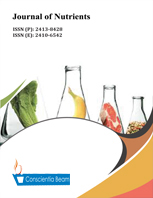A Preliminary Cross-Sectional Assessment on Exclusive Breastfeeding among Women Attending a Postnatal Clinic at the Holy Family Hospital, Techiman, Ghana
DOI:
https://doi.org/10.18488/journal.87.2021.71.8.13Abstract
Exclusive breastfeeding (EBF) for the first six months of life has remained low in Ghana, despite strong evidence of benefits to babies/infants that supports the practice. This study is a preliminary assessment of the adherence to EBF among mothers attending the postnatal clinic. Methods: The study was cross-sectional, involving 85 breastfeeding mothers who attended the postnatal clinic at the Holy Family Hospital, Techiman. A structured questionnaire was used to collect data on socio-demographic information and adherence to EBF. A total of 85 mothers and their babies (50 females and 35 males) participated in the study. Out of this total, 45.9% (39/85) were exclusively breastfed, while 54.1% (46/85) were non-exclusively breastfed. About 17.6% of the mothers with Junior High School (JHS) education exclusively breastfed their babies compared to those with Senior High School (SHS) (15.3%) and tertiary (12.9%) (p > 0.05). Babies who were not exclusively breastfed were 12.9% (11/85), 17.6% (15/85), and 23.5% (20/85) for mothers with JHS, SHS, and tertiary education respectively (r = 0.182, p = 0.096). The distribution of weight classification among exclusive and non-exclusively breastfed babies was significantly different (χ2 = 13.583, p 0.001). The findings of this study provide a preliminary assessment of adherence to EBF in Techiman, Ghana. Exclusive breastfeeding practices appear suboptimal. Education and working status of mothers negatively impact adherence on exclusive breastfeeding. Interventions emphasizing the continuous education of mothers could promote exclusive breastfeeding.

